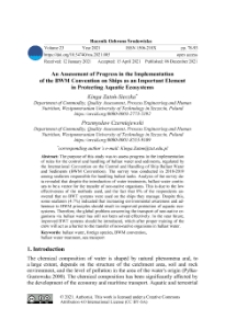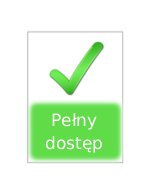Biblioteka Cyfrowa Politechniki Koszalińskiej contains 2 041 digital objects
Object
Title: An assessment of progress in the implementation of the BWM convention on ships as an important element in protecting aquatic ecosystems
Description:
Place of publishing:
Publisher:
Format:
Identifier:
oai:dlibra.tu.koszalin.pl:1646
Language:
Is part of:
Rocznik Ochrona Środowiska. Vol. 23, s. 78-93
Rights:
Biblioteka Politechniki Koszalińskiej
Access rights:
License:
Object collections:
- Digital Library - Koszalin University of Technology > Open Access
- Digital Library - Koszalin University of Technology > Journals > Rocznik Ochrona Środowiska > Vol.23
- Digital Library - Koszalin University of Technology > Journals > Rocznik Ochrona Środowiska > Vol.25
Last modified:
Nov 6, 2023
In our library since:
Oct 10, 2022
Number of object content hits:
99
All available object's versions:
https://dlibra.tu.koszalin.pl/publication/1650


